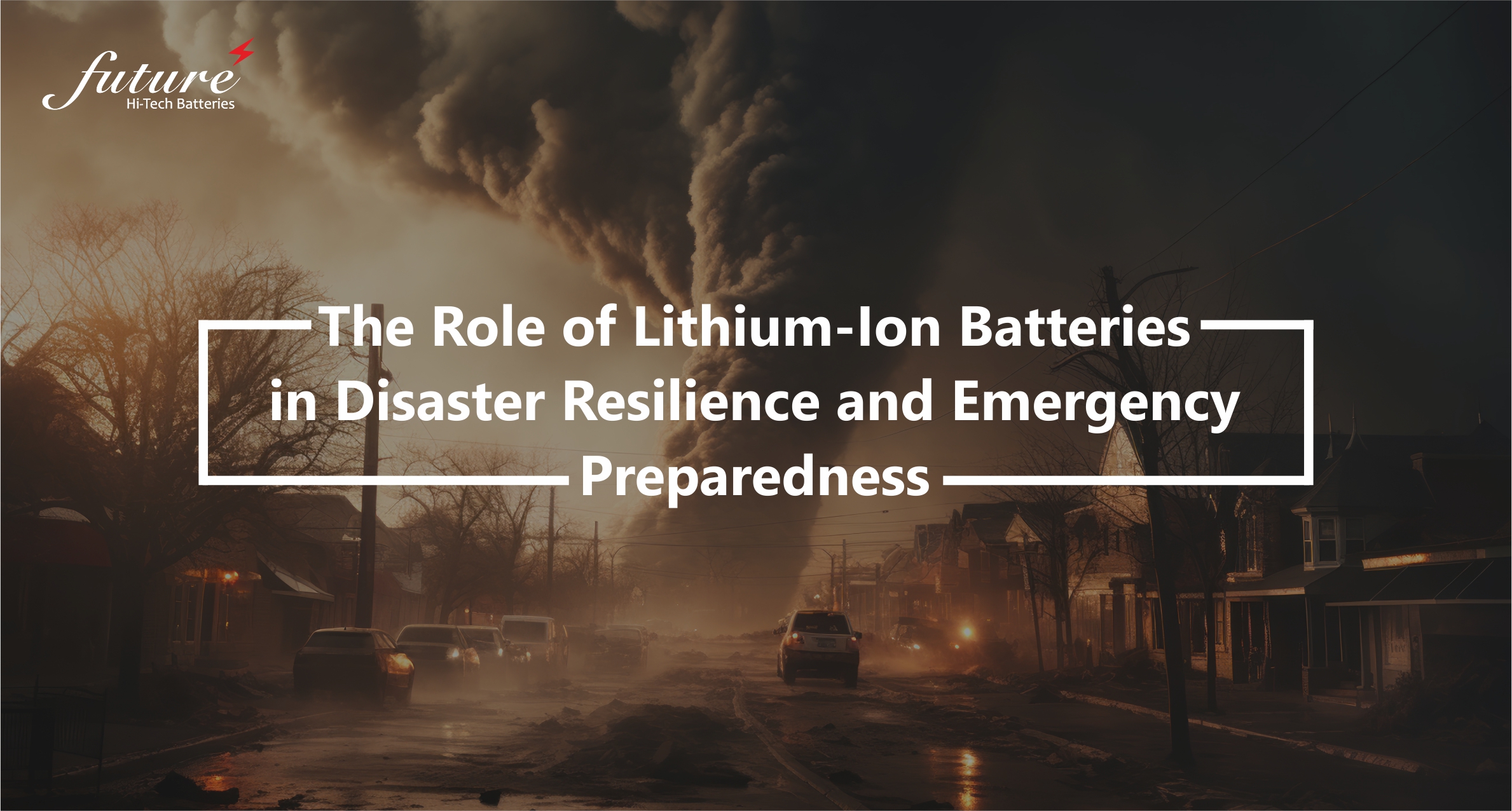Amid rising natural catastrophes, lithium-ion batteries have become critical enablers of disaster sustainability and preparedness. Their high energy density and density makes them perfect for delivering important backup power during blackouts resulting from natural disasters. Lithium-ion systems are commonly used in emergency response operations. They provide dependable power support that is critically needed for carrying out communication and health services. Furthermore, they improve the dependability of the systems that underpin supporting structures and guarantee that vital establishments will function. In this article, we investigate the impact of lithium-ion batteries in upgrading society’s preparedness for natural disasters as we live in a world where the ordinary is the new abnormal.
Supplying Electricity Supply in Times of Calamities
Mobile lithium-ion batteries are the ray of hope in natural disasters, providing electricity for important gadgets and networks when supply energy is down. It is especially important as the Grid reserving can provide needed electricity for critical facilities like hospitals, guaranteeing safety and care during emergencies.
Backing up Emergency Response Operations
In emergency response, the efficiency of responding to the disaster depends on good communication and supply chain management. Portable electronics and automobiles are powered by lithium-ion batteries, thus providing coordination and transportation. The output of such charging features guarantees the continuous functioning of rescue and medical teams. It significantly extends the number of saved lives and fast recovery processes.
Improving the Resilience of Vital Network
Smart and sustainable solutions for infrastructure systems which include Lithium-ion batteries. They supply power to important facilities so that the effects of blackouts are considerably reduced. It makes certain that water treatment plants, telecommunication systems, and transportation networks operate, post-disaster.
Solar, wind, and micro hydro power solutions for renewable energy in grids and for remote locations where there is no grid connection or the grid is far away, lithium-ion batteries provide the means of storing energy from sources such as solar or wind farms. It also provides a clean energy source to power communities during and after a disaster, without over-dependency on fragile grids and the destruction of fossil fuels.
Enabling enhanced rapid recovery and reconstruction process
Efforts must be made to get life back to normal, since construction activities are central to post-disaster recovery programs. Thus, Li-ion batteries can be used to charge tools and machinery in areas where the power is still unavailable, facilitating the reconstruction. They can be easily taken to the scene of concern and put to use. It reduces the downtime in the reconstruction process for homes, shelters, and even infrastructure that have to be cleared or rebuilt where necessary, making rehabilitated as quick as possible.
Managing Computer Networks for Security
Data and communication networks have become the core and focal point for response and management. Lithium-ion batteries allow uninterrupted power supplies to data centers. They also power the telecommunication networks that are necessary to organize the response process, providing people with relevant information and support. They ensure a steady supply of power that supports the stream of critical information. That is why they are fundamental in shaping the situation awareness and the decision-making process during disasters.
Conclusion
Lithium-ion batteries have emerged as the solution to problems with natural disasters and power fluctuations in India. The use of them in operating during the Kerala Flood and services during cyclones is a testimony of its viability and durability. Lithium-ion batteries today are in a unique position as India marches towards a better and brighter energy-efficient tomorrow. They are not only likely to revolutionize disaster management but also help in improving over emergency preparedness. These batteries can certainly help build a better tomorrow for a disaster-prone country like India. It is vast with an output of a safer and better prepared India of the future.
Follow us on LinkedIn.
Lorem ipsum dolor sit amet, nec in adipiscing purus luctus, urna pellentesque fringilla vel, non sed arcu integer, mauris ullamcorper ante ut non torquent.










Your Comment Please